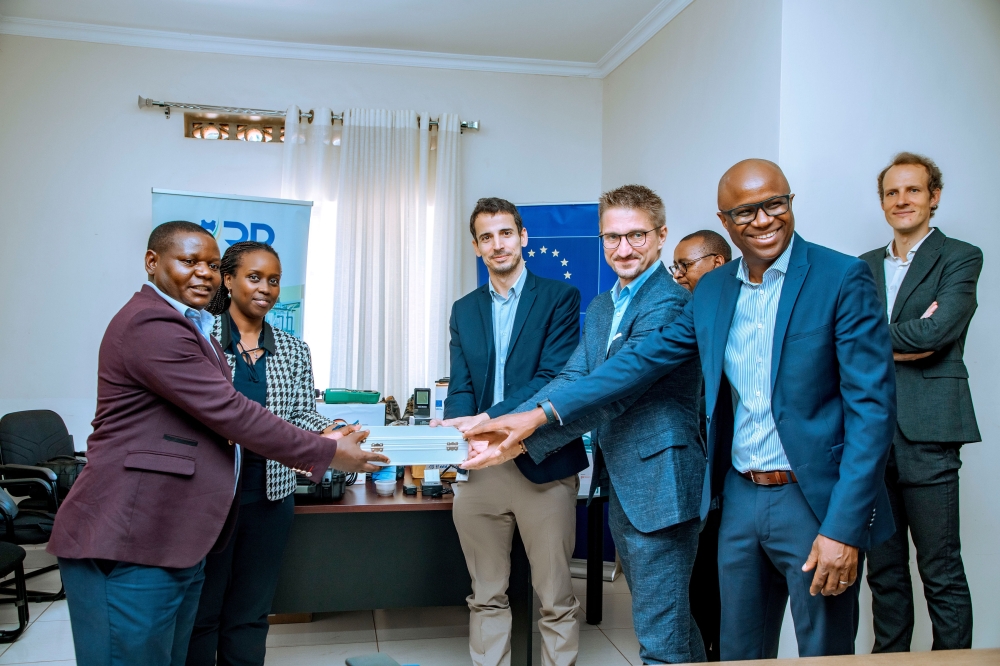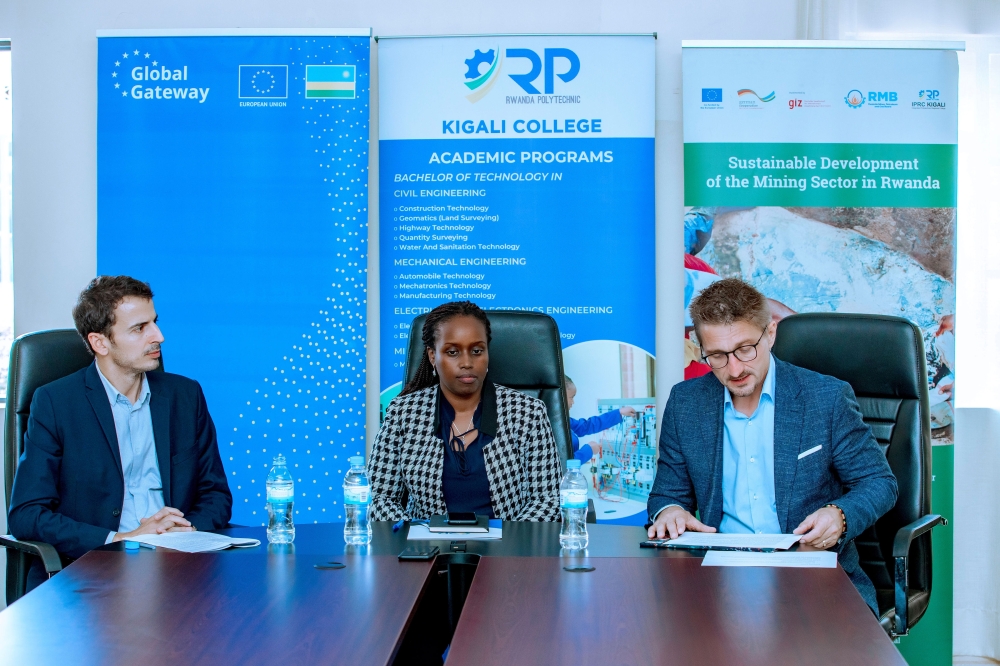

Rwanda’s mining sector is banking on, among other important items, the new mining law and an ongoing sustainable development project, for progress, according to players in the industry.
As part of Rwanda's mining legal framework, the new law on mining and quarry operations establishes a foundation for sustainable development by aligning economic growth with environmental and social responsibility focusing on community engagement as well as clear reporting standards aimed at attracting responsible investments. Additionally, the law enhances worker safety and health standards and encourages the adoption of innovative technologies to improve efficiency and minimize environmental impact, positioning Rwanda as a leader in sustainable mining practices.
The law of June 26, 2024, on mining and quarry operations was promulgated in the official gazette on July 24. It brought about changes including tougher penalties which are intended to deter illegal miners, according to the government.


For both individuals and legal entities, penalties for offences range from a minimum Rwf25 million to Rwf150 million alongside possible imprisonment terms ranging from two months to 10 years for individuals, and dissolution of legal entities (such as companies or cooperatives), depending on the implicated offences.
These penalties are far tougher than those in the repealed law of 2018 which provided that any person who undertakes mineral exploration, exploitation, processing or trading without a licence, commits an offence. Upon conviction, he or she is liable to imprisonment for a term of not less than two months and not more than six months and a fine of not less than Rwf1 million and not more than Rwf5 million, or only one of these penalties.
Tackling illegal mining, quarrying
Etienne Uwimana, President of Rwanda Quarry Association, said that the new law has provisions that support legal mining and quarry investors, especially because the repealed law of 2018 did provide for lenient penalties that could not deter those who carry out mining or quarrying without license or their accomplices.
"But this [new] law provides for tougher penalties against anyone who will indulge in mining or quarrying without a license, which will deter them,” he said, appreciating the law and expressing optimism it will help ensure transparency in mining and quarry operations.
"You realised that there were conflicts among people who had licenses and those who did not. But I think that any Rwandan who knows the value of money or the impact of imprisonment, will not become implicated in things for which they are not allowed to do,” he said in reference to the strict penalties provided for by the new law.
He pointed out that the law will ensure transparency once its relevant provisions are enforced or complied with.
Eng. Andre Mutsindashyaka, the Secretary General of Rwanda Extractive Industry Workers Union (REWU), said that the newly enacted law comes to help mining owners [investors], and particularly workers [miners] such that their rights are better respected, in line with ensuring a well-regulated sector.
"Miners will get employment contracts in a transparent manner because the new mining law provides for improvement in the respect of miners’ rights. Mining workers will be able to get covered under social security [pension scheme] because until now, there is a lack of social security among workers in the extractive industry,” he indicated.
So far, he said, only 34 per cent of workers have social security coverage under the Rwanda Social Security Board (RSSB), and it is the same percentage that has employment contracts.
The law emphasizes strict adherence to health and safety standards to protect workers and surrounding communities.
The development, Mutsindashyaka said, will help prevent accidents at workplace, with improvement of occupational health and safety.
Mutsindashyaka pointed out that the law seeks, among other things, to halt illegal mining, pointing out that landowners were among the people who encourage illegal mining.
By even targeting such land owners in terms of penalties – for allowing illegal mining – the law will address the issue, he held.
ALSO READ: Rwanda gets equipment to support sustainable mining efforts
Other things the law provides for include the condition that license holders must work with district authorities to prepare a plan for local development and social welfare in mining areas, and that mining and quarry projects must conduct environmental and social impact assessments before beginning operations.
Sustainable mining sector development
Rwanda is implementing a Sustainable Development of the Mining Sector in Rwanda project, whose goals are strengthening the country’s mining sector, improving entrepreneurship and business environment, increasing investment in the mining industry, and supporting Rwanda’s socio-economic development through strategic partnerships.
Co-funded by the European Union (EU) and the German Federal Ministry for Economic Cooperation and Development (BMZ), the project is implemented by GIZ in partnership with Rwanda Mines, Petroleum and Gas Board (RMB) and the Kigali Integrated Polytechnic Centre’s Rutongo Mining School.
The project expected results and impact include building a digital traceability tool called the Digital Mineral Traceability System (DMTS) to fully digitalise all mineral traceability services and integrate all the mineral service providers into a single National database on mineral traceability; substantial progress in the digitalisation of mine site data and operationalization of mining sector services through the Geological Information and Mining Cadaster System ( GIMCS ); procuring equipment under the ongoing €4.15 million project; and future-proof training curricula for mining professionals.
GIZ Country Director to Rwanda and Burundi, Maik Schwarz, said that as a member of European Union, Germany remains highly committed to promoting responsible mineral supply chains – in line with meeting international standards for transparency, human rights, and environmental protection.
He was speaking on September 24, 2024, during a handover of mining equipment to Rwanda. The equipment meant for supporting the digitalisation of Rwanda’s mining sector and ensuring the safety of staff, was procured under the Sustainable Development of the Mining Sector in Rwanda.
A sustainable, transparent, human rights based approach in mining sector in Rwanda, Schwarz observed, will benefit the people in the country with more money in their pockets, encourage more investment in the sector, better access to education, and better access to health services, among others.
"Together we can set an example on how responsible mining can benefit societies both in Africa, and in Europe,” he said.


